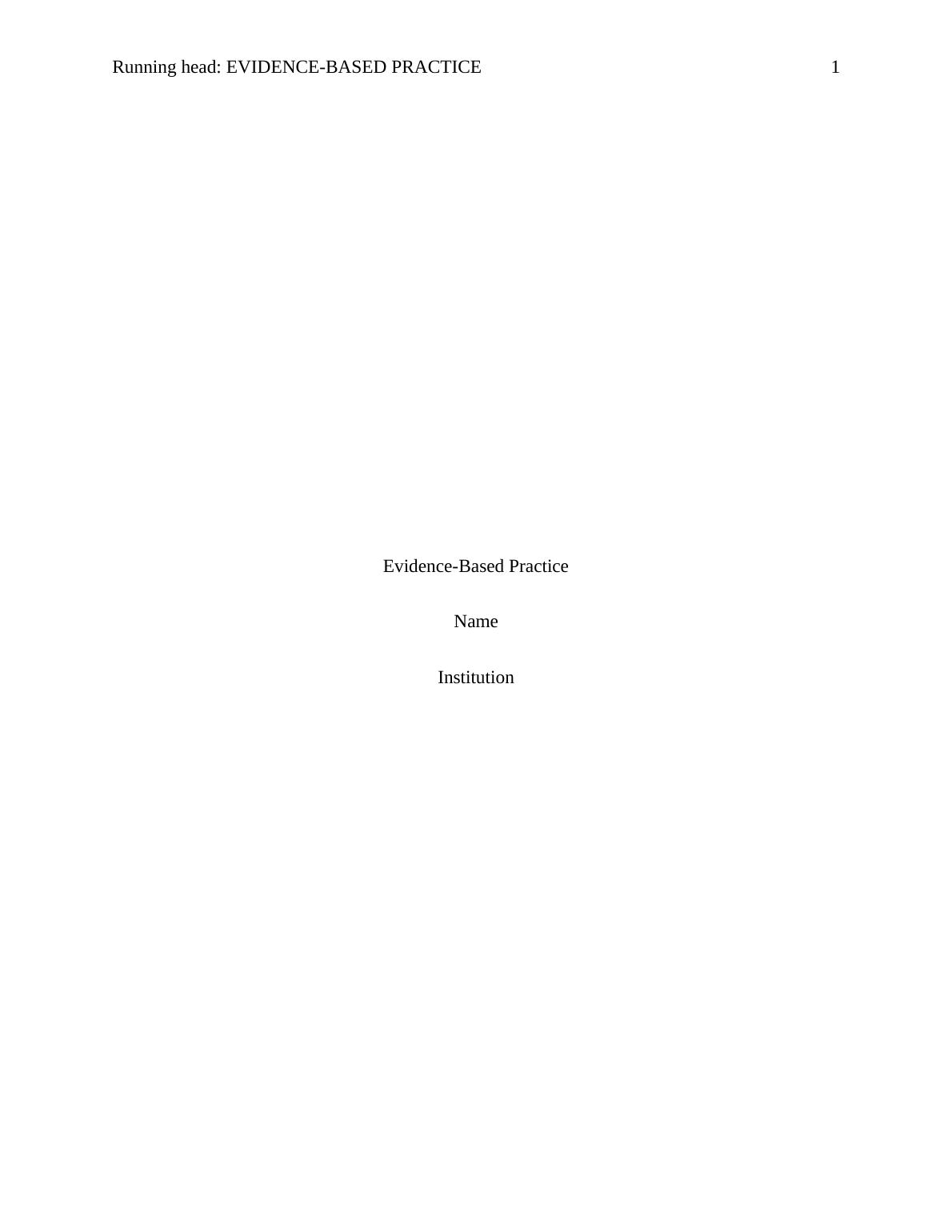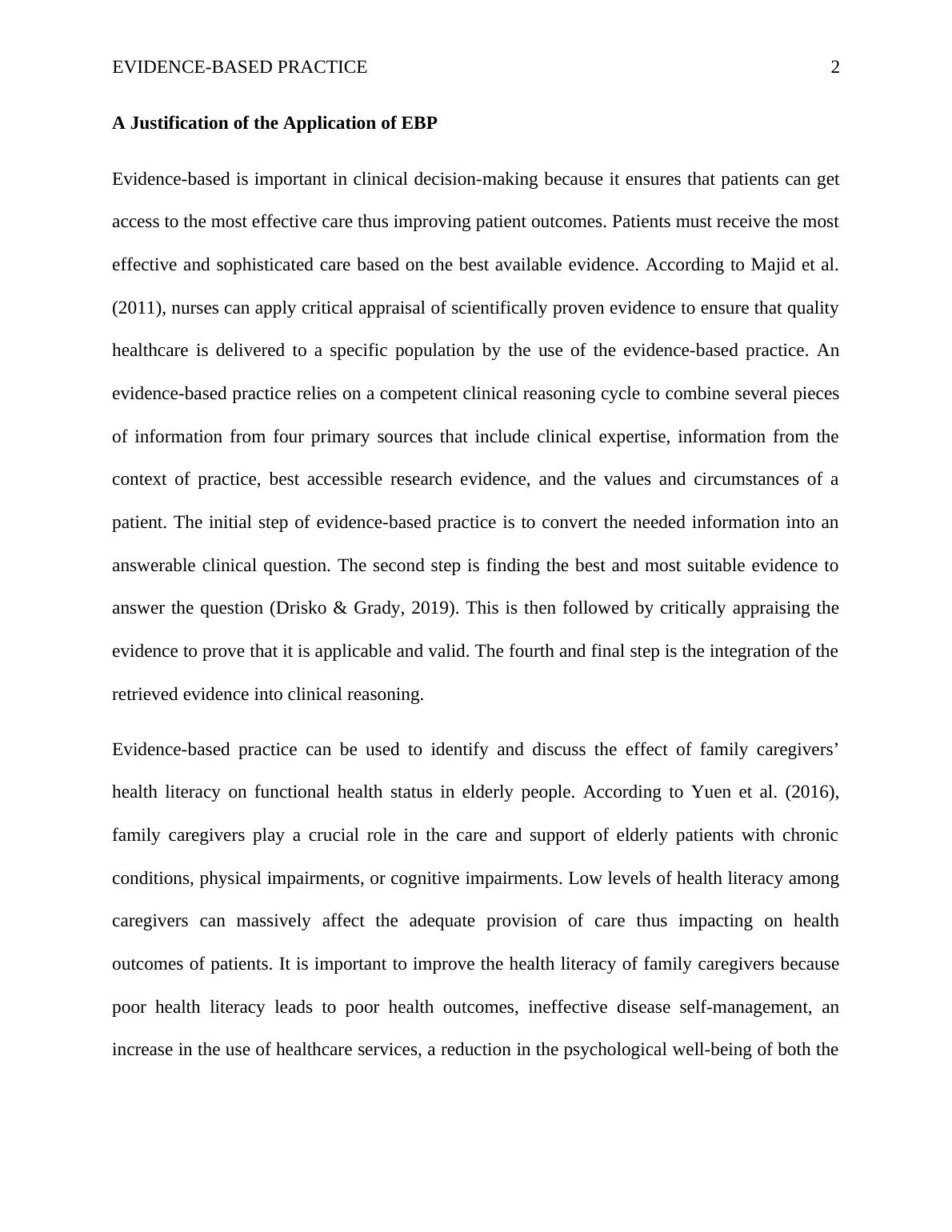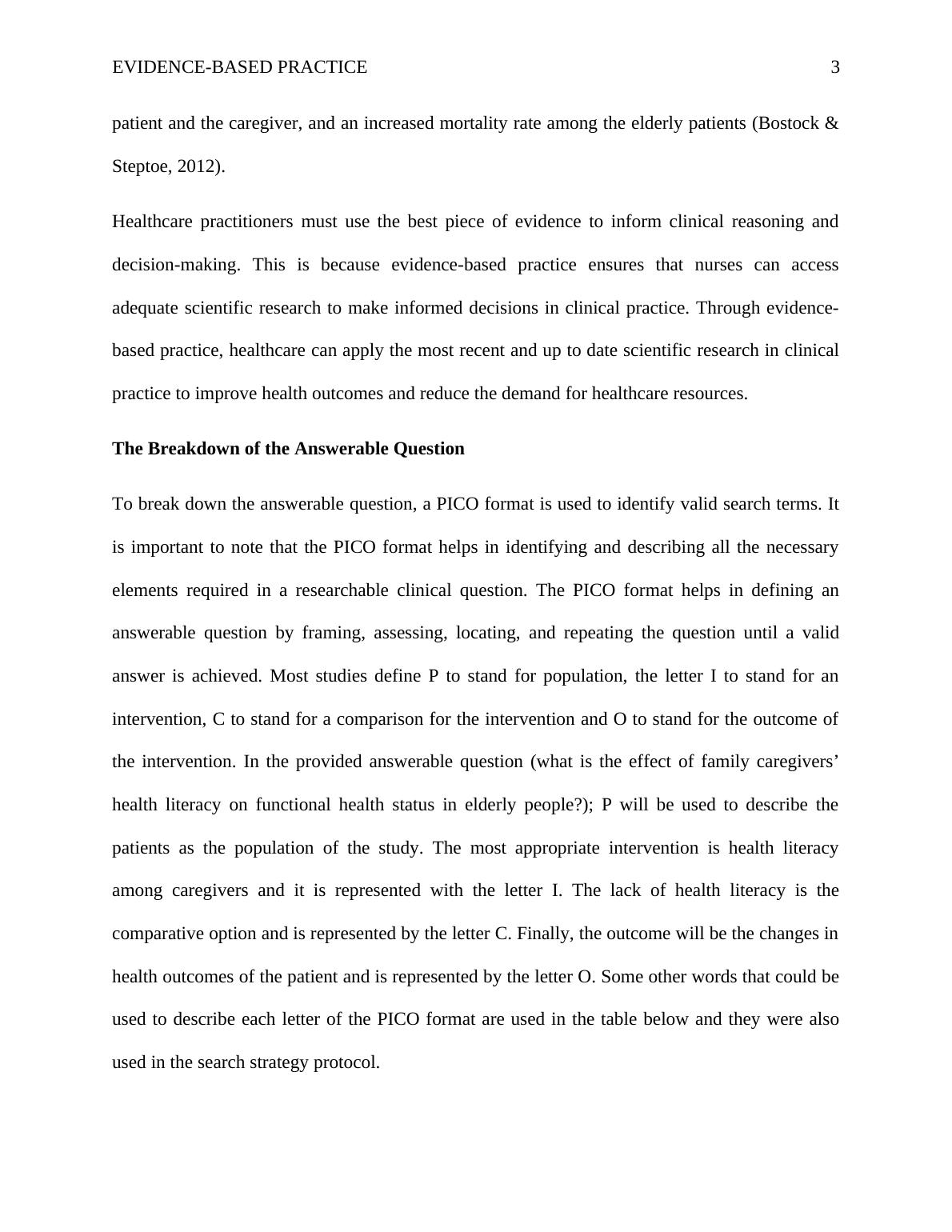Health & Social Care In The Community Docx.
This guide provides examples and explanations of APA 7th referencing style for students at Edith Cowan University.
9 Pages1919 Words20 Views
Added on 2022-08-22
Health & Social Care In The Community Docx.
This guide provides examples and explanations of APA 7th referencing style for students at Edith Cowan University.
Added on 2022-08-22
ShareRelated Documents
End of preview
Want to access all the pages? Upload your documents or become a member.
Caregivers’ Health Literacy on Older Adults
|13
|2453
|15
Factors That Affect Family Caregiver's Health Literacy in Elderly Population
|11
|2250
|27
EBP Process | Evidence Based Nursing Research
|14
|2699
|22
Music Therapy Postoperatively for Pain Control
|10
|2406
|124
Evidence Based Nursing Research
|5
|1064
|364
Evidence based practice in nursing- Discuss the evidence for an aspect of clinical practice that impacts on the quality of the patient experience
|8
|2557
|58



